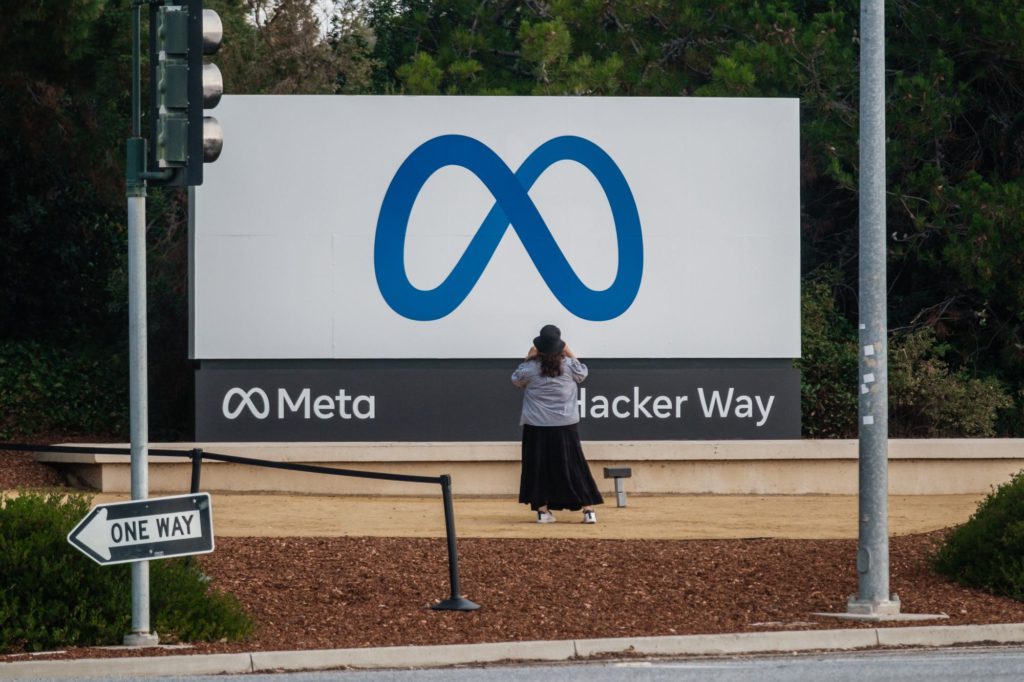After years of revising and updating its election strategy, Meta Platforms Inc. is pulling out a familiar playbook for the US midterms, sticking with many of the same tactics it used during the 2020 general election to handle political ads and fight misinformation.
(Bloomberg) — After years of revising and updating its election strategy, Meta Platforms Inc. is pulling out a familiar playbook for the US midterms, sticking with many of the same tactics it used during the 2020 general election to handle political ads and fight misinformation.
That largely means focusing on scrubbing misinformation about voting logistics and restricting any new political ads in the week prior to Election Day.
“You’ll see that we both maintain the policies and practices where we think it makes sense, but also improve upon them,” Clegg said in an interview Monday. “My philosophy in all of this is to build on what we did before. Be consistent, be clear, fill the gaps where we can identify those gaps.”
Similar to the general election two years ago, the company, which owns Facebook and Instagram, will remove posts that mislead people on where, when and how to vote, or that call for violence based on the voting or election outcome, according to a statement Tuesday. Ads that push people not to vote or that question the legitimacy of an election will be removed.
Meta is working with 10 outside fact checking partners, including five Spanish-language organizations, to review posts and label them if they’re misleading. The company will also prompt users to check out a section of its site with general voting information, curated by Meta employees.
A key part of Meta’s current approach relates to political advertising. In the week prior to the election, no new ads on political or social issues can run — just like in 2020 — though the company reviewed and revised the policy. Marketers won’t be able to change any of the ad design or audience targeting parameters during the week before the vote.
“The one thing we wanted to avoid was carrying the highly contentious, inflammatory ads at the last minute, which can’t then be contested,” Clegg said.
Meta has a controversial policy of not fact-checking political ads. The company has debated internally on how to handle political ads for years, with criticism flaring after the 2016 US election when Facebook and Instagram unwittingly sold ads to Russian trolls trying to sow discord among US voters. Facebook also came under fire during the Jan. 6, 2021 insurrection, which was organized in part on Facebook and fueled by false claims of an illegitimate election.
Meta has considered blocking political ads entirely — an approach used in some European elections — though reaction to the idea was mixed. The US electoral system gives paid speech “a very particular status,” Clegg said.
Meta believes it has an “obligation to carry that kind of material,” he said. Instead of blocking ads, Meta makes all political advertisers register with the company, and saves and shows the promotions in a searchable public archive.
In 2020, the company told lawmakers it blocked or removed 265,000 posts and rejected 3.3 million ad submissions that violated its policies against voter interference. Among politicians, the response was split. Republicans criticized the social media giant for being too aggressive and claimed it infringed on free expression. Democrats said the actions weren’t enough, pointing to posts from President Donald Trump that his political opponents said contained misinformation.
While the company is largely using an old playbook during this year’s US midterms, Clegg asserts that the company can still make changes as needed. This marks his first American election with full discretion over related policy decisions, after outgoing Chief Operating Officer Sheryl Sandberg leaves in September.
“Our work is not finished, there will be things we can’t predict, there will be things that go better and things that go worse,” Clegg said. “One thing I can assure you certainly as long as I’m doing this job is I will be unflinching and self-critical as to whether we are doing the right thing in roughly the right order.”
More stories like this are available on bloomberg.com
©2022 Bloomberg L.P.











